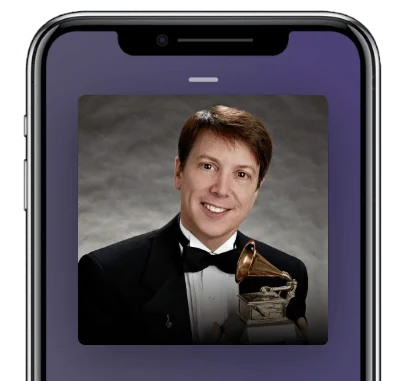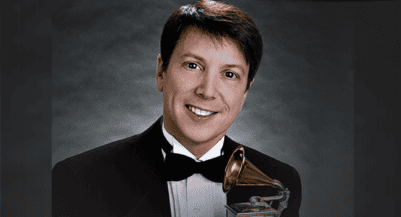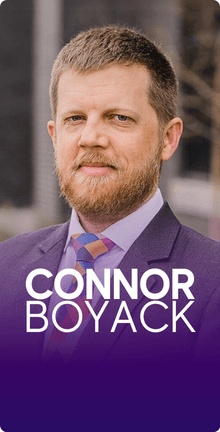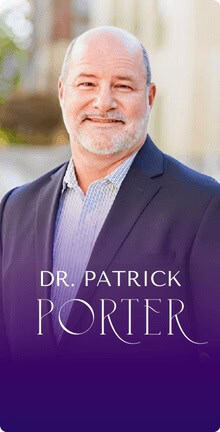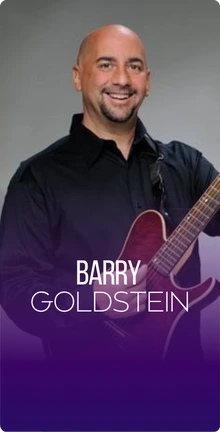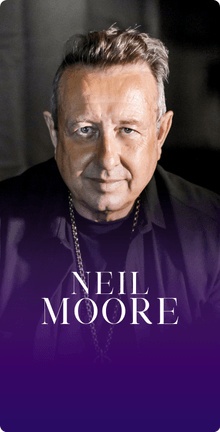In this Episode
- [01:54]Dennis shares how he got into music and songwriting and describes his experiences in the music industry, including some personalities he had worked with.
- [05:51]Dennis discusses Mister Rogers’ impact on society and his intimate relationship with his viewers.
- [13:24]Stephan asks Dennis about an experience that significantly impacted him.
- [16:46]Dennis talks about the Grammy awards he won. and how he began to work on audiobooks for Peter Pan records.
- [21:11]Stephan and Dennis discuss the concept of fanfiction and briefly mention a children’s TV series called Noddy that Dennis worked on.
- [22:34]Dennis describes his creative process, where he brainstorms ideas on a legal pad.
- [29:39]How did Dennis use his musical influences to create catchy and memorable songs that teach a lesson without being too preachy?
- [32:20]Stephan and Dennis discuss the challenge of teaching kids morals and good behavior in an engaging and effective wa
- [37:27]Dennis discussed his desire to work on a project related to Mister Rogers.
- [42:31]Dennis talks about his advice to people wanting to join the music or recording business.
Dennis, it’s so great to have you on the show.
Thank you. Listening to you going over my credits is like watching my life flash before my eyes.
I’m sure I’ve left many famous names off the list too. I’m curious if there’s one project, client, or artist that just pops off the page or out of the ether for you as, ‘wow, that was quite an incredible experience.’
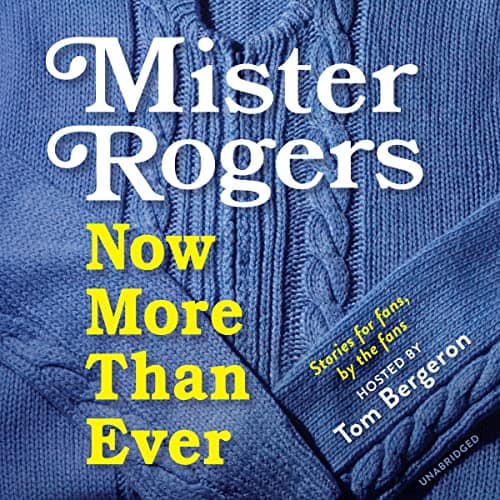
I would have to say that getting to work with Micky Dolenz from The Monkees was probably as close to an out-of-body experience as I could get because growing up, I loved The Beatles. I play in a Beatles band, but The Monkees were pretty high up there for me too. So to be standing next to these gentlemen whom I idolized growing up and me conducting him and telling him ‘okay, sing now and stop singing’ is like, what happened here?
My favorite story was when I got into the car to leave for the airport to go to the recording session from Nashville to LA. I turned on the ignition, the radio came on, and what was playing was Last Train to Clarksville, so that was a sign.
There are so many signs. I love how the universe works. What got you started? What spark turned this into such a lifelong passion for you?
It depends on how far back you want to go. I was a child actor growing up. Then, at age seven, I was in a Broadway show. I continued on that path for a long time until I realized it was very tough.
I fell into music and started to enjoy that more. Like you say, the universe works in strange ways. I started getting into songwriting and wrote a novelty song called Captain Kirk’s Disco Trek, which is a lot of fun but a hard song to sell because novelty songs don’t come on the radio that often these days. I took it around, and somebody said, “Well, why don’t you take it to a children’s record label?” Which I did. They didn’t want it either, but they said they liked my writing and asked if I’d like to try writing parody songs for them for a project they had. So I did, and that turned out pretty well. I thought, now what do I do?
I took that album to Sesame Street, which had its record label at the time, and they said, “We like what you’re doing, but we don’t have anything for you right now. So why don’t you come into the office a few days a week, put on a tie and a jacket, and try to find some artists for this new project we have in mind, a Sesame Street goes country album?”
Novelty songs don’t come on the radio that often these days.
Without getting paid or anything like that, I did that and got Glen Campbell, Tanya Tucker, Loretta Lynn, and Crystal Gayle. Then, when the time came, the record label president said, “Hey, do you want to produce this?”
I had never produced a real album before. I had produced my songwriting demos but nothing like that. But my mother said, “Never say no,” so I said, “Of course, I’d love to do that.” I had to get a professional in a hurry. That was my first Grammy Award, so I thought, this is a very good place to be. I enjoy it and look at what has happened so far. That’s my story.
That’s amazing. There’s this adage that all growth happens outside your comfort zone, so be willing to go outside your comfort zone, try new things, and say yes to things you have no experience doing. That’s gutsy.
I think that’s been my experience throughout my career, pretty much. The nightmare I have sometimes is that I’ll get to a gig and I didn’t bring my guitar, or I’ll get to a recording session and forget the music. That hasn’t happened, thank goodness, but I guess it lurks in my mind.
That’s like the artist’s version of the nightmare of showing up and forgetting to have worn pants.
I’ve had pants in all these dreams, so that’s a good start.
Success in the creative industry doesn’t solely depend on talent, Perseverance and resilience are vital. Rejection is inevitable, but how you handle it determines your future. Share on XAwesome. Let’s talk a bit about Mister Rogers. He’s such an inspirational person and soul to have graced our planet, given us many life lessons, and helped us steer generations of kids in the right direction. I’d love to hear your take on Mister Rogers and how you got involved with his mission. What thoughts do you have about the movie about him and everything?
I have to say that I grew up when I was a little past Mister Rogers’ show. However, in the course of doing two albums about him, a video of celebrating his birthday, and right now an audiobook that features everyday people that I interviewed telling their experiences about Mister Rogers, their encounters with him, and people who receive letters from him and attention from a man whom is I’m sure very busy—he answered every letter that he got to his show personally and changed people’s lives—I’ve spoken to the people whose lives he changed.
There are few people in this world, especially in this industry, that you can say had such an intimate relationship with hundreds of thousands of people over the years. My involvement started innocently. I watched television, and a rerun of Mister Rogers’ show came on. He sang this beautiful song called It’s You I Like. I said, “Wow, that’s a great little song. I wonder who wrote it.”
After some research, I found out that he wrote that song plus all the 200 songs aired on his show. I wondered if anybody besides Mister Rogers had recorded this; lo and behold, nobody had. I thought this was just an opportunity. I couldn’t let go of it.
I got some people to help me with the project to help underwrite it. So we got all these different artists singing Mister Rogers’ songs and putting their stamps on it—some of the people you mentioned like Donna Summer, Amy Grant, and all these people—and made it special. But, of course, it wasn’t special, but it gave a different light on how musical it was and how it worked as an adult song and a children’s song. So even the message held up as an adult message.
Long story short, I was a little afraid after doing this that Mister Rogers’ people would be like, ‘what have you done with his songs?’ These are not the way Fred did them. But then I spoke with his wife, Mrs. Rogers, and she said, “You know what, I just listened to this. I love it, and Fred would have loved it.” So that’s all I needed to hear.
He truly loved music and songwriting, and he was good at it. He was a true craftsman. But, unfortunately, people don’t appreciate or don’t understand how important that was and how good he was at it because it came in the guise of being a children’s song. People tend to dismiss children’s songs, but when you listen to the songs with the treatment we give, you get to appreciate his writing skills.
People tend to dismiss children’s songs.
This is a long-winded answer to your question, but another album came. In the second album, it was less of a challenge to turn his songs into more pop songs and different styled songs but more of really getting to know him through his music and appreciating him as a human being through his music.
Awesome. So you never met him in person.
No.
How about his wife or widow? Did you ever meet her?
Yeah. We got to be friends and stayed in contact. She was very supportive of the project. But, unfortunately, she’s passed away.
My only complaint is that I don’t see enough attention being paid to Fred’s music in his new productions, which are done by people other than Fred.
I feel honored to meet her and spend time with her and other people in the cast, like Mr. McFeely. We are friends now. We will stay in touch.
That’s wonderful. When I was little, I watched a bit of Mister Rogers. I love how kind he was to everybody. He was cutting edge when you think about what he was facing regarding social pressures. To have people of color on the show and so forth was a big deal back when he pushed that issue and ensured diversity in his program. That was pretty brave.
Indeed. He was the real deal. He walked the walk in this audiobook I was telling you about, listening to the stories of people and how he affected their lives. Maybe you can be effective through a certain movie, show, or book, but he was completely hands-on. I can’t think of anybody who would take the time to do that these days.
Speaking of books, movies, and things that make an impression on us, what made an impression on you?
I’ll go first to give you an example. I loved the movie, Contact and how making approachable and accessible extraterrestrials allow us to dream about first contact to be something that’s not silly, not horribly violent, and the world’s destruction but something that is typically plausible and makes us better as a human race. I was just really inspired by that movie.
What’s an example of something that sticks in your mind that made a big impression?
When I think about it, I’m a pretty self-motivated guy. I go after different projects and relish doing them, but working on Mister Rogers affected me more than I realized. Since working on both albums, I have tried to be a better person because I saw what he was, and I saw the good in the world that he was doing. I think I will take that with me now.
It wasn’t just a one-time deal. I did this album and now move on to the next one. I find myself quoting him. I find myself thinking, and I wonder what Fred would say about that. But, I have to say it really did change my life too.
Awesome. Did you see the movie, Won’t You Be My Neighbor?
I did. I thought they did a great job with it.
What would be a project that you might not have made huge waves with but that you think there’s something special about it?
Let me give you something to consider that’s actually your project and how I found out about you, the Safetypup album. My oldest daughter is 31, and she loved those songs.
My wife now and I have a three-year-old son, so my first daughter is telling me, “oh, you should get this book and this and that,” and she just brought up Safetypup. She’s like, “that was such a big thing for me.” She loved it. It’s really, really special.
We have no idea how big the ripple effect is that we make through our good works in the world, but that’s just a small example of a ripple reaching out eventually to me through my daughter, Chloe.
Don’t hold back with your passion. Follow it with your whole heart and soul. Share on XYou’re so right about that because I’ve actually gotten letters from people. Not tons of them, but every once in a while, something will come up regarding Safetypup or some other projects I’ve done. It just catches me by surprise.
I think, well, how could anybody even know about this? It’s people who were kids and have grown up—which partly reveals my age. It is gratifying to see that something you did actually had an influence, helped somebody in some way, or they just enjoyed it, even if that is okay.
I get that on several projects. One is the one you mentioned. Another is a song I co-wrote that got onto an episode of Who’s the Boss? Ray Charles sang it.
I still get letters from people saying, “hey, can I use this for my wedding?” It’s a song called Always a Friend. People want to use it for different occasions. Sometimes, they can’t even find the music, and I’m happy to help them because I’d like to see the song continue, and I’d like to see it help other people as well.
What did you win a Grammy or Emmy for?
There were two Grammys. One was the Sesame Street Country album that I mentioned. The second one was my first Mister Rogers album called Songs from the Neighborhood: The Music of Mister Rogers. That was in 2006.
The Emmy was for a children’s puppet series called Trollies. I wrote all new songs for it and gave new characters. I think it won Best Original Composition.
That’s awesome. What about audiobooks? I think that’s part of your portfolio of work as well.
For audiobooks, if you go back, I originally started working with read-along books, which had a cassette package with it, and you flip the pages. I did a whole number of them for a record label called Peter Pan Records, which were original Golden Records, those little gold discs that you would play made out of plastic. That’s where that started.
Are any of these things collectibles that you might see on eBay and things like that that sell for a lot of money?
I’m laughing because every once in a while, somebody calls me up and says, “Hey, I found your Sesame album in the bargain bin here at Walmart or someplace.” I just have to laugh at that. It’s $1.99 or something for it.
I got the idea to interview people who were Beatles fans, they all have incredible stories too.
Things are still out there. I try to keep a sample of the product and the things that I work on, and I have it on a wall on a shelf in another room.
I see the progression of my career. It starts with vinyl, goes to cassettes, goes to VHS, goes to digital, and now we’re at audiobooks, which is where you left off.
This new Mister Rogers album called Mister Rogers–Now, More Than Ever is actually my second foray into the audiobook world. The first one was an album that was actually nominated for a Grammy in the spoken word category. It was more like an audiobook than anything else.
I mentioned that I play in a Beatles band. I got the idea to interview people who were Beatles fans like myself because they all have incredible stories too. I thought these stories were just jewels. They need to be heard.
There’s never been an album or an audio product that tells The Beatles’ story from the fans’ perspective and such great, great stories, funny stories, and touching stories. We got Louise Harrison, George Harrison’s big sister, to narrate it, which is probably as close to The Beatles as I’ll ever get.
By the way, I should say as a follow-up that we lost in the category to Betty White, who had an audiobook out that year which is not the worst thing in the world. We wrote a song called The Betty White Song. You can watch it on YouTube. It was our little cathartic way of expressing our experience of losing to Betty White.
Then, more recently, this audiobook that I was telling you about has been submitted for a Grammy. We don’t know how it will do, but I just hope people listen to it because they’ll appreciate the stories about Mister Rogers, again, from the fans’ perspective.
I think I unwittingly created a business model for some of these audio products because I like hearing the stories behind the songs and the stories behind the people who encountered the artists.
There’s a whole category I don’t know a lot about, but it’s called fan fiction.
Really? I like that.
It’s songwriting written in an amateur capacity by fans unauthorized by or based on an existing work of fiction. If you can do that with fiction, and that’s a thing—fanfiction is a pretty big thing—why not have something along those lines but based on music?
Yup, or nonfiction fans. I do like that. I’ll have it on your desk by tomorrow morning. I say that in jest because I’ve had requests from people who needed something very quickly.
Sometimes life works in strange ways, but we must be grateful for its path. Share on XI worked on a children’s TV series called Noddy. It was on PBS for a couple of years. There was one time they got it mixed up, and they needed a Christmas song written, recorded, and in their hands by the next day. They were filming in Canada.
I didn’t even think it was possible, but we went ahead and got it done unbelievably. I drove to the airport. I actually got out of my car and walked onto the tarmac, where I saw the Federal Express jet. I waved it up in the air. I said, “please, you have to take this. Amazingly, they didn’t arrest me.”
Wow. And they actually took it, and you made the deadline.
Made the deadline.
Amazing. How do you get the inspiration to create something that’s such a creative work? It’s something that you can’t just pull out of thin air. It comes from somewhere. It comes from the quantum field or something.
How do you get these lyrics? How do you get the melodies? How does this all come together? How can you pull it together so quickly on a deadline when they say they need it tomorrow?

I think it’s some sort of controlled creativity or channeled creativity because, as you say, when you have a deadline like that, you don’t have the luxury of, ‘oh, I’ll work on this for a couple of days, I’ll take a drive into the country, and then I’ll come back and do that again.’
I use a legal pad. I’m old-school in that way. I’ll just start brainstorming ideas. I’ll have about 15 ideas that are all usable, but I don’t have the luxury of, ‘well, I’ll work on this one for a while and see how that works.’ You just have to make a decision, have faith that this is the right decision, and go for it. That’s basically how I operate.
I’m lucky that I have a great musical resource or background to pull from because I loved all sorts of music growing up. I was very fond of theater music as well as pop music. When I get a little bit uninspired, I’ll put on a Beatles song and say, well, they did that. I can do that. Maybe not always as good, but at least honoring them in that way by doing what they did. When they went into the studio, they gave them two days or maybe one day to record an entire album. I have a little bit more luxury than that most of the time, but not always.
I recently learned that the book, The Alchemist was written in 12 days. It sold 150 million copies, and it was written in 12 days. That blows my mind.
I think every once in a while, a musical idea comes to me, and I try to use it as soon as possible.
I know there are some songwriters, especially in Nashville, who will say, ‘oh, I got the inspiration. It came to me in five minutes, or ‘it wrote itself.’ For me, it’s a little bit more work. Every once, I’ll get a snippet of an idea that I like, and I don’t know where it came from.
Paul McCartney—I know I keep mentioning the Beatles—wrote Yesterday in his sleep as what he says. It was such a good song. He didn’t believe he had actually come up with it. He thought maybe he had heard it from somewhere else, and it was somebody else’s song. He kept asking everyone, “have you ever heard the song?” They said, “no, it sounds new to me.” And the rest is history there.
I think every once in a while, a musical idea comes to me, and I try to use it as soon as possible for whatever I’ve got, but I don’t really write songs for myself if I’m outside on this pretty day. I tend to be a guy who writes to an assignment, even if it’s a self-imposed assignment. I need a goal or deadline.
I think it’s Parkinson’s Law that says that the project will fit the deadline and time parameters that you give it. You give somebody an hour to complete a task, and they’ll complete it in an hour. If you give them 25 hours, they’ll finish in 25 hours for the same thing or task.
It sounds like it. I actually have a project I’m working on now. I was given the assignment at the beginning of the year. Normally, I’ll get on something right away, but no one’s ever given me that leeway, so I took advantage of it and did some traveling and things with my family.
Now, I’m a little bit paying for the price because I see the clock ticking, and I know that December will be here shortly. Then, there are things that get in the way, and there are holidays, so I’m now burning the midnight oil a little bit more to make that deadline.
I think next time somebody gives me that leeway, I’ll say, it doesn’t have to be in the contract, but just tell me you really want this in two months. You’ll get it in a year, but I need the two-month deadline.
I worked on a collection of albums for the United Methodist Church, and each one had a slightly different theme.
Having an open-ended deadline is not good for getting stuff done, is it?
Not for me.
What was this song that was nominated for the Christian music Dove Award?
I don’t know if that was a song or an album. I worked on a collection of albums for the United Methodist Church, and each one had a slightly different theme.
I’m embarrassed to say I would have to look it up to see which album it was, but it’s a fair statement because I did—over the years that I worked with them—I’m going to say at least 150 songs or so spread out between all these different albums. I’ll take whatever grace you can give me and say I don’t remember which one it was, but it was really good, and it should have won.
Did they provide you with the words, and then you just had to come up with the melodies to go with it?
No. They told me, here’s a story about Noah. We need a story about Samson, or whatever it is. Then, I would immerse myself in the story and try to come up with something that was fun for the kids that didn’t necessarily pound them over the head with teaching something but would instinctively or subliminally instill the message of the story to them. I try to do that whenever I can.
I don’t believe in writing down to kids. I think I’d rather raise the bar a little higher and let them reach for it, and most of the time, they do.
Let’s take the example of Samson. How would you go about taking that story and turning it into a song that teaches a lesson that isn’t beating the person over the head with the moral of the story and is memorable and catchy?
I take advantage of all the musical influences that I’ve had.
Thinking back to that story, first of all, I take advantage of all the musical influences that I’ve had. I know what songs have a beat that makes me react to them or are fun to listen to, catchy and hooky. A lot of that music resides in the ’60s, ’70s, and ’80s.
In this case of Samson, I thought, wouldn’t it be fun if we had a ’60s girl group singing the song about Samson? I brainstormed, and I came up with the title Samson’s Got a Secret. It’s like if you imagine the supreme Samson’s Got a Secret, and that led to more lyrics and more music. It’s danceable, funny, and tells a story too.
In these cases, I had to assume that in the classroom, kids were already reading the story. They’ve heard what the story is, and they don’t need me to tell them again what the story is, so I just said, let’s have fun with this. I was pretty happy with that song.
That’s cool. I particularly like the story of Samson. My son just turned three, and he still has yet to have his haircut. In Judaism, having your child get their hair cut at age three and not before is something that has some spiritual roots to it, like the Samson story in the Bible.
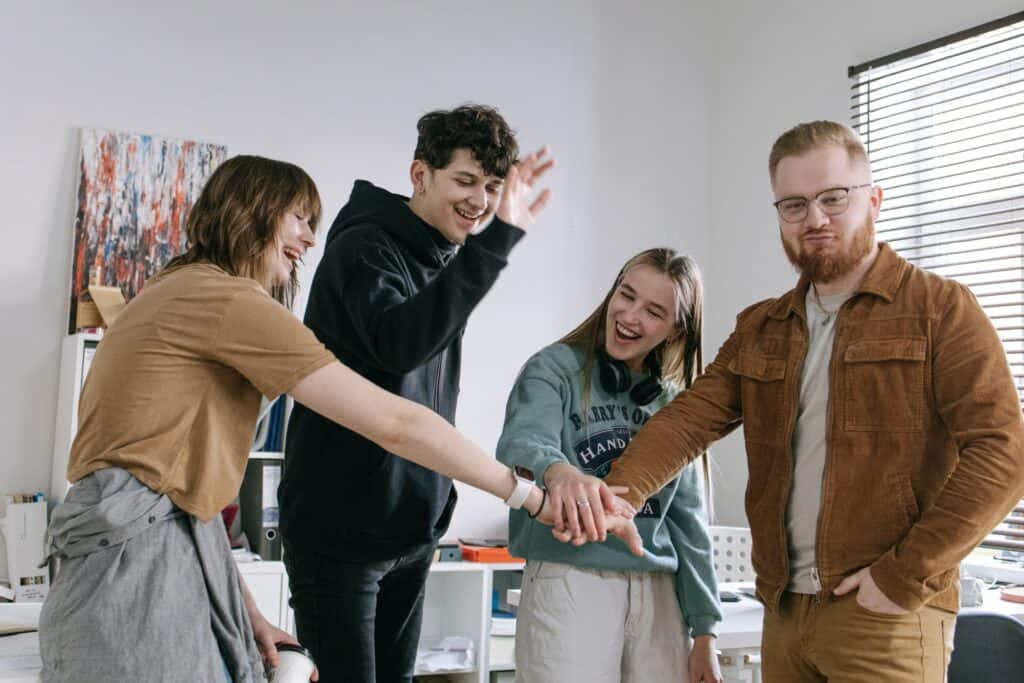
If you imagine it, the hair is like straws. They’re sucking in the surrounding light. There’s a light that fills your vessel, and there’s a light that doesn’t get into your vessel because it’s already full. It’s destined for you. If you work on increasing the size of your vessel and being a better and better person, that increases that vessel so you can take in more and more light.
There’s surrounding light around you that’s meant for you. You can take some of that in with your long hair is the spiritual concept behind it. I think there’s something to it.
Anyway, we still haven’t cut his hair yet. He just turned three a week ago. He really likes it. My wife really likes it too, so I don’t know if he’s going to get a cut anytime soon. When someone asks about his hair, I’ll bring up the Samson story from the Bible.
There you go. It works every time.
Don’t speak down to the kids because that’ll turn them off.
Let’s talk more generally about teaching kids things like morals, good behavior, what’s right, what’s true, and all that and doing it in a musical way. What would be some of the key ingredients for success here, and maybe a few examples too?
As I said, I think step one is to not speak down to the kids because that’ll turn them off, and the rest is lost. Hopefully, parents are doing their job and not leaving everything to the songs, music, writers, and TV shows.
Putting that aside, I think our job really is to reinforce what the kids learn at home. Hopefully, it’s those things that you mentioned; how to be a good person, how to share, and how to cooperate.
Some people write songs that are specifically about cooperation, and they’ll say cooperation is good, but I always try to find some backdoor to write the song or make a statement lyrically that doesn’t say what it is.
If you’re going to write a song about love, instead of writing, ‘I love you, I love you, I love you,’ what about some story that reveals how that happened, how you love somebody, and why you love somebody as opposed to just lightly saying it? I try to keep a little alarm in my head and say, ‘no, throw that out. That’s not going to work.’
I want to find ways of expressing feelings that is less direct and will convey the same type of thing.
I have a possible assignment with a well-known children’s artist from the ’80s and ’90s. He has a laundry list of things that he wants to include on his album, including songs about emotions. That’s going to pose an interesting challenge because, again, I don’t want to say, ‘I feel angry, angry, angry.’ I want to find some way of expressing that that is less direct and will convey the same type of thing. We’ll see what happens with that.
Going back to the Safetypup projects that you have. Those are some catchy songs. As I said, my daughter was reminiscing about them. One that pops to mind is smoking and how bad smoking is.
It didn’t hit the kid over the head sort of thing. It was subtle enough that they didn’t feel like it was propaganda, but it was catchy. It was really well received. It was catchy and memorable enough that years and decades later, she still can recall lyrics from it and how it went.
How did you come up with the angle to take with a song like that? How do you source the talent to support you in that? There’s a process there, I’m sure. Maybe you have a checklist or standard operating procedure that you follow, like, all right, this is going to be sung by whoever, we need backup vocals, or we need these kinds of musicians for this particular piece. How does that all work?
I think about what a good friend of mine said. She was a much-celebrated background singer here in Nashville and has worked with all the stories. She once told me—and I live by these words—”the song will tell you what to do.”
When I follow that, I’m never sorry because you have to listen to what the song is saying. The song is saying, ‘I am crying out for a background singer, I am crying out for a mandolin on the song,’ or whatever it happens to be.
You have to listen several times before you hear what the song is telling you.
You just have to keep listening. Sometimes, you have to listen several times before you hear what the song is telling you, but that’s what I use as my little guideline. I’m happy that it’s served me well. At a certain point, it becomes second nature because you hear something distinctly. Oh, there’s got to be a saxophone there.
I’m not listening as intently because I’ve come to do it so often with so many projects, musicians, and singers. But it starts with the song. It really does.
Is there something that you want to accomplish that you haven’t yet, or that’s been back-burnered, and you want to get back to it?
This is a retro answer because we’ve been talking about Mister Rogers. The second album that I did, which is called Thank You, Mister Rogers: Music & Memories, is the one that has Micky Dolenz on it, as we talked about. Vanessa Williams, Kellie Pickler, all this variety of artists, and even Tom Bergeron, if you remember from Dancing with the Stars and before that, America’s Funniest Home Videos are on it. By the way, a great whistler. He whistles to his song.
I’m not quite satisfied with how things have gone for this album because it came out right about the same time as COVID. As you know, everything just went haywire. I’d like to see it have a relaunch, and I’d like people to start discovering it. Discovering not only these great artists singing Fred’s great songs but just hearing his message in a new and refreshing way.
I’m on a campaign to get it back into the public eye. I’m not quite sure what that form will take. It might mean going to another record label or doing something, but the fact of the matter is Mister Rogers is here forever. His birthday is in March every year, and we celebrate it here at my house. I’m very devoted and hopeful that we can make this album work. By the way, I brought it along with me. There he is.

That’s awesome.
Shameless promotion, but when it comes to Fred, I can afford to be shameless.
That’s so cool that you know his birthday. By the way, something that’s really cool I learned from Judaism is to light a candle on their death anniversary and pray for their soul’s elevation. That really does make a difference. They light candles for righteous, famous rabbis and so forth on their death anniversary.
I happen to be Jewish, so I understand what you’re saying. I light a candle for my parents every year.
You might be wondering what was a Jewish boy working on United Methodist songs. It wasn’t planned. I just love writing. I’m here in Nashville, and they were located here. We had a meeting, and they liked my writing. They never asked me if I was Jewish, and I didn’t exactly say anything, but we had a great relationship. They mentored me in many ways, and I mentored myself. I think I did justice to the material.
Awesome. There’s somebody who passed this year that I want to bring up because he’s on your list of people that you’ve worked with, Gilbert Gottfried. He passed earlier this year.
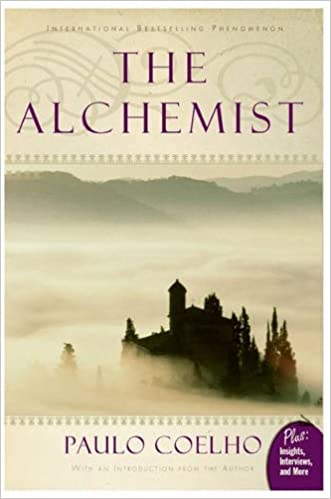
Is there anything you want to share about him or the project you worked on that involved him?
I wrote a song that he was going to sing in this PBS series called Noddy. He played Jack Frost. They made his hair all white and frosty. You don’t think of him as a singer, so it had to be a song that would accommodate his vocal range and also a little style because he was Jack Frost. He was making everything cold in this particular episode, and he was proud of himself.
I wrote a song that was a tip of the hat to the song, Mack the Knife, with Bobby Darin’s great rendition of that. I wrote a song. It was called Jack Frost is Back in Town. We gave it a big band feel, which was wonderful.
I don’t know whether he’s ever had the opportunity to work with a big band, but I went up to Toronto to record him where the show was being filmed, and we got along great. He’s like a lot of these comedians who create a persona that works for them. He’s funny and successful like other people like Jack Benny.
Jack Benny was not a cheap man. He was a very generous man. Gilbert Gottfried was a quieter guy. I got to see that side of him. That’s my Gilbert experience, but we had a good time.
He’s most famous probably for voicing Iago in Aladdin.
And the insurance duck of Aflac Duck.
Yes. He’s the duck on Aflac Duck. I like the duck more than the gecko from GEICO.
The duck is pretty funny, but he made a great living using that very familiar voice of his.
If you were to address something that we hadn’t talked about, let’s say a question that I should have asked but didn’t, what would that question be, and how would you answer it?
I have to say you were pretty thorough, so that makes it a little more difficult.
People who want to get into the music business or the recording business, people who want to be singers or musicians, and even actors come my way and want to know what I think. It’s a challenge for me because I don’t want to discourage anyone who has a passion.
If music is your passion, then go for it.
My bottom line is if this is your passion, then go for it. Train yourself, get to be an expert at what you do, be the best that you can be, be better than everybody else, and go for it.
But at the same time, I want to tell them that it’s not easy. A lot of people don’t make it. Even though they’re more talented than anybody, it just doesn’t happen for them. You have to be prepared for that, develop a tough skin, and learn that rejection is something to deal with and embrace. Brush it off your shoulders and keep trying.
I like to believe that eventually, the people who are persistent will achieve some degree of success. I’m not short on persistence here. I got that from my mom, dad, grandparents, and whoever else has influenced me. It’s worked for me. I do believe that you have to blow your own horn sometimes. I wish all those people well.
Just find the balance. If it doesn’t happen for you, that doesn’t mean that you can’t still enjoy doing community theater, writing your own songs, and things like that. Not everybody has to have a number-one record or a Grammy. Grammys are great, but they make better doorstops than they do anything else.
I think the main thing is to follow your bliss. It leads to recognition, such as an award, hitting a certain status of a bestseller, or whatever. That’s the bonus and the cherry on top, but following your bliss is where all the magic is because it’s feeding your soul.
Also, I think whether you win any accolades or not over here on this side of the veil in the upper world, and even if hardly anybody got their hands on your album or your creative work, it was celebrated on the other side of the veil.
There’s a song called Make Someone Happy. Even if one person heard a song that I wrote and it made their life better, then that’s probably more important than anything else. Put the words aside, just do what you do, and make somebody happy doing it.
Embrace opportunities and take risks. You never know where they might take you. Share on XThere’s this concept I believe is real. It’s called the “life review.” When you pass back into nonphysical, your life is presented to you but in a way that you can step in the other person’s shoes and feel what it was like for them to receive the good and the bad.
Imagine finding out that you saved people’s lives because your music stopped them from smoking cigarettes even though everybody in their family smoked. They heard that song and decided, you know what, I’m not doing it. I’m not going to be yet another family member who is addicted to this cancer stick. I’m not doing it. You may never know until you get into your life review that you have that impact on people.
When I was writing those Safetypup songs or the National Child Council, I didn’t really think in terms of whose life this is going to save, but I think you’re right. It really does make a difference.
It all matters. Thank you, Dennis. This was fun and, I’m sure, inspiring for those who want to follow their bliss and their passion. You also compose custom songs and music for different projects. If somebody listening to this wants to send a project your way, do you still take those on?
Absolutely.
How do they find you?
It’s amazing how people find you these days. God bless the Internet. It really makes you more accessible than ever. I do have a website. It’s dennisscott.net. You can hear some of the things I’ve done and some of the songs that we’ve worked on there. I don’t know if there’s a Safetypup song there, but if there’s not, I’ll take care of that. There are Mister Rogers songs and other things. I’m reachable. Some people don’t put their contact information, but I’m very approachable.
Yes, you are because I reached out completely out of the blue.
I’m so glad you did. Thank you for this great interview and for your penetrating questions. I didn’t think I’d have to use my brain today.
Thank you so much, Dennis. Thank you, listener. Be an inspiration for others, and rewards will come. We’ll catch you in the next episode. I’m your host, Stephan Spencer, signing off.
Important Links
Connect with Dennis Scott
Books
Business/Organization
Film
People

